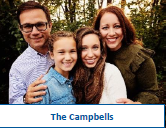In 1997 when I was a junior in college, my mom called to let me know that my father had been diagnosed with prostate cancer. Luckily for him, Prostate Specific Antigen (PSA) testing had recently started which resulted in early detection and subsequent prostatectomy. Due to his diagnosis and knowing prostate cancer is an inherited cancer, my paternal uncle and paternal grandfather began monitoring their PSA levels closely. Over the next several years, both were diagnosed with prostate cancer. As I got older, I knew that I would need to have annual physicals to monitor my PSA levels.
Over the past several years, my PSA level consistently stayed at zero until August 2021, when my PSA jumped to 4.7. To confirm this drastic increase, my primary care physician requested a second PSA. The next day, he called me to let me know that it was 6. Knowing my family history, I felt a sense of fear, but knew there were more steps to be taken before a cancer diagnosis was confirmed. In November 2021, my urologist performed a biopsy that determined a cancer diagnosis. Even though I was destined for this diagnosis because of prostate cancer’s inherited characteristics, my wife Jeana and I were in shock because I was only 47 at the time. Surgery with Dr. Sam Chang took place at Vanderbilt on January 11th, 2022, which resulted in a successful removal of my prostate and a cancer free diagnosis.
With my strong family history of prostate cancer, Dr. Chang suggested that I provide a blood sample for genetic testing. Jeana and I have two daughters, Suzanna, age 17, and Elizabeth, age 12, so we assumed that they would be spared an inherited cancer diagnosis being females. However, after completing my genetic testing and discussing with Dr. Pal, it was discovered that I had a CHEK2 mutation, which can present as breast or colon cancer. We are so grateful to have this important information so we can determine if early testing is right for our daughters.
My father will be participating in testing on April 7th, 2023. He is a retired pediatrician and is eager to be a part of this process to paint a better picture for our family and to help others learn more. My family is so thankful that the Inherited Cancer Registry exists to gather information to assist with cancer research and diagnosis, and ultimately treatment. – Adam Campbell

